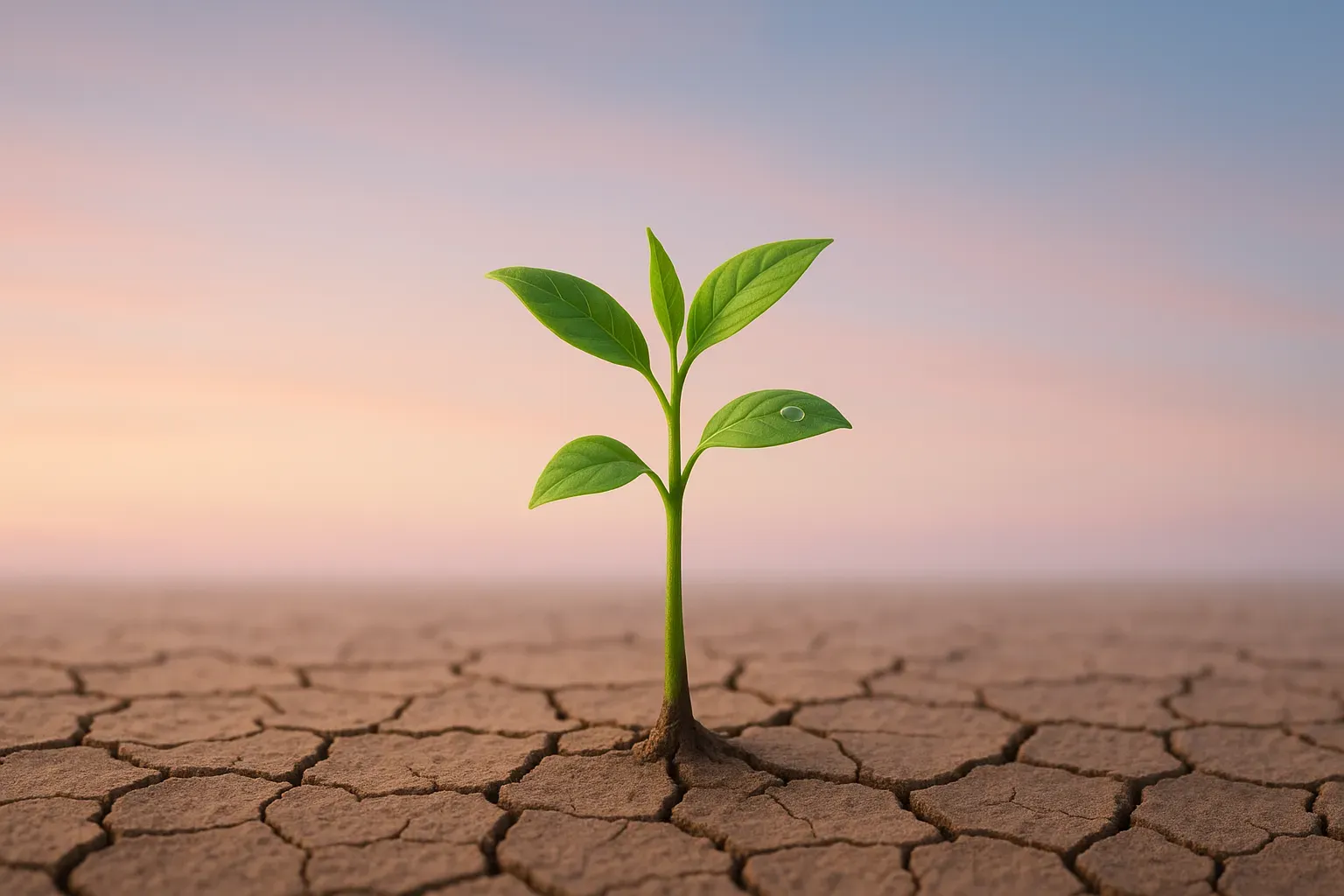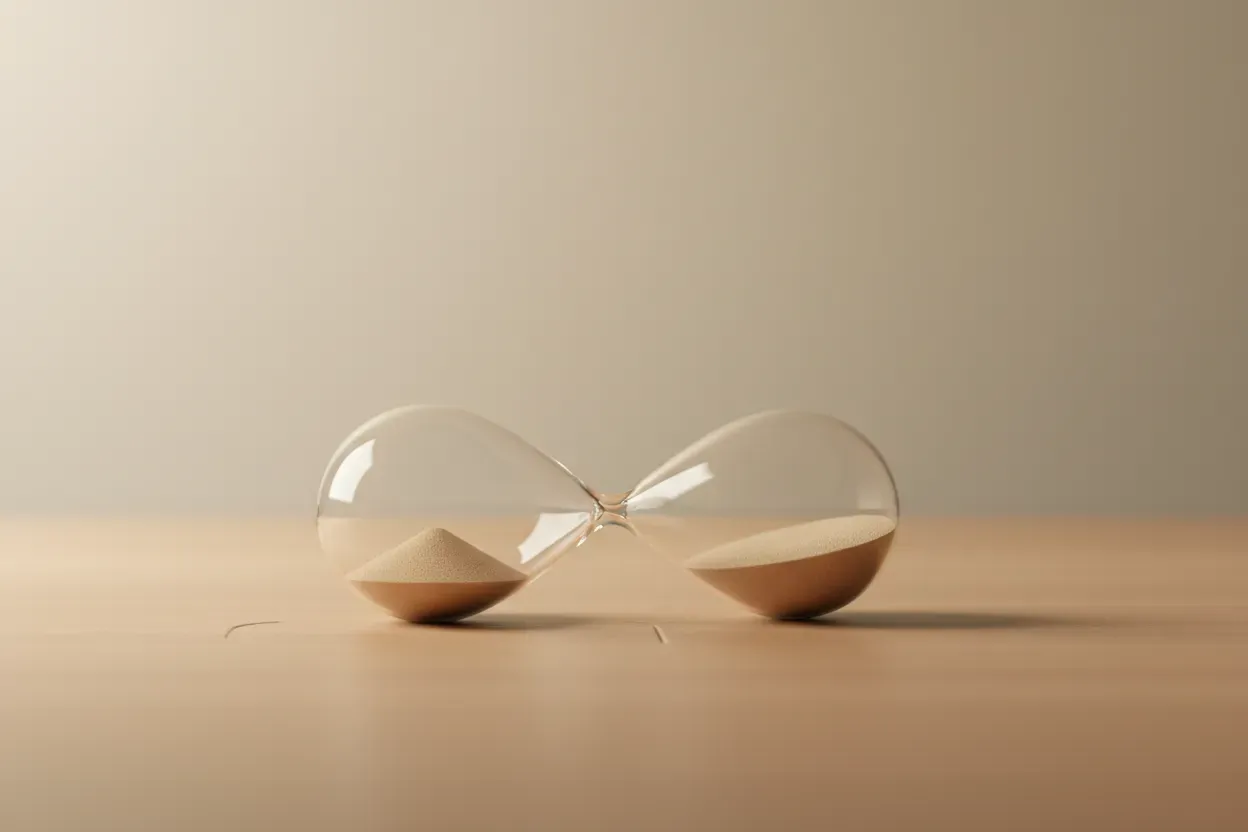23 Ways Personal Setbacks Can Lead to Unexpected Growth and Strength
Personal setbacks often transform into unexpected catalysts for growth, as demonstrated by the diverse experiences shared by industry leaders in this article. From health challenges that redefined success to business failures that taught crucial entrepreneurial lessons, these stories reveal the hidden strength found in adversity. Top experts across medicine, business, and personal development reveal how life’s most challenging moments can become powerful foundations for resilience and achievement.
- Terminal Diagnosis Revealed Power of Purpose
- Addiction Recovery Reframed Life With Questions
- Parental Loss Developed Neural Resilience Techniques
- Father’s Death Instilled Unwavering Moral Conviction
- Health Setback Taught Balancing Success With Wellbeing
- Slow Failure Developed Observant Patience
- Grandmother’s Diaries Revealed Inherited Resilience
- Construction Bid Error Cultivated Verification Discipline
- Near-Death Experience Redefined Personal Success
- Lost Client Transformed Leadership Through Humility
- Failed Businesses Taught Critical Entrepreneurial Flexibility
- Rejected Pitch Unlocked Authentic Brand Voice
- Supply Chain Disaster Built Operational Vigilance
- Product Crisis Built Customer Trust Through Transparency
- Lost Contract Developed Empathy in Leadership
- Client Loss Created Better Project Management
- Patient Loss Developed Medical Emotional Endurance
- Hiring Mistakes Refined Values-Based Team Building
- Separating Self-Worth From Startup Outcomes
- Code Migration Failure Fostered Engineering Diligence
- Failed Service Launch Taught Market Adaptability
- Service Mistake Built Culture of Accountability
- Disappointment Transformed Into Steady Confidence
Terminal Diagnosis Revealed Power of Purpose
When I was diagnosed with a terminal illness over seven years ago, it felt like the world stopped. The doctor told me I had about six months left, and I remember asking what I could do to beat those odds. He said, “Find something to live for.” That advice became the turning point. My family, my friends, and later, Aura became the reasons I kept going. I needed a purpose beyond my diagnosis, something that gave meaning to every day, and building Aura gave me exactly that.
Working in the funeral industry has a strange way of teaching you how to live. You’re constantly reminded of what really matters, which makes you determined to create something meaningful. Aura became more than a business. It became proof that something beautiful can grow out of something difficult. The strength I gained wasn’t just resilience. It was gratitude. Gratitude for time, for people, for the chance to contribute something lasting.
Looking back, that setback shaped not just how I live, but how I lead. It taught me that purpose is the most powerful medicine we have, and that even in the face of loss, you can still build something that gives others comfort, hope, and connection.

Addiction Recovery Reframed Life With Questions
Losing the family business because of my addiction was the hardest setback of my life, but it became a turning point. In early recovery, someone asked me, “What if you just lived one day without a drink or a drug?” That question helped me see that change doesn’t start with confidence or motivation—it starts with perspective and action. I learned to reframe challenges with “What If” questions that open new possibilities. Two words that changed how I see things. As a result, I’ve been clean and sober for 39 years. I’ve run companies. Written three books. Spoken around the world. Something I never dreamed possible after my world fell apart.
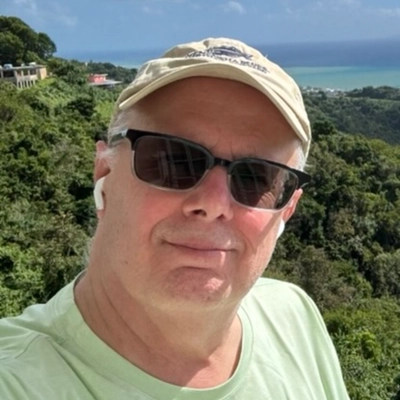
Parental Loss Developed Neural Resilience Techniques
Losing both my parents as a teenager taught me that the deepest wounds can become the source of your greatest resilience. In the months after their deaths, I found my amygdala firing off panic alarms at the slightest stress, so I learned to retrain my brain by leaning into deliberate breath-hold exercises that gradually strengthened my vagal tone and prefrontal regulation. Early on, I’d wake up drenched in anxiety, but journaling thoughts for just five minutes rewrote those neural pathways through neuroplasticity, turning a cycle of fear into one of purpose.
I remember guiding a client through a boardroom meltdown with the same techniques I’d honed after my own loss, proving that personal tragedy can yield professional mastery. That experience gifted me an uncanny ability to stay grounded under pressure and to help high-achievers do the same. The real takeaway is that adversity isn’t just something to survive; it’s what primes your brain for unstoppable growth.
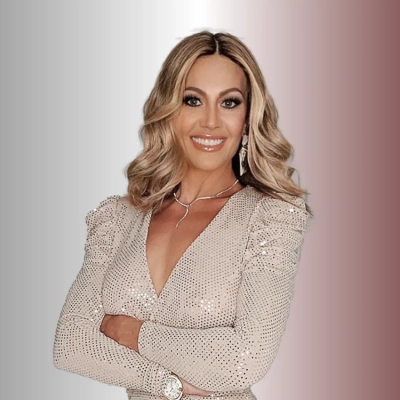
Father’s Death Instilled Unwavering Moral Conviction
My dad was a quiet Texan cowboy—salt of the earth, boots on, hat in hand, didn’t say much unless it mattered. He was about as different from me as you could script: he rode horses, I ride subways. He found peace under open skies, I chase stories in cities that never sleep. But he was my person. My anchor. My favorite human being in the world.
When I lost him, it wasn’t just grief. It was disorientation. The one person who was always proud of me—no caveats, no conditions—was gone. The one who showed up no matter what, who didn’t flinch at my chaos, my career pivots, my queerness, my ambition—just pure, steady love. Losing him was like someone cut the line to gravity.
But here’s what stayed: his values.
My dad believed in doing what’s right even when no one’s watching. He believed in helping people just because you could. He believed in fairness, in decency, in shaking a man’s hand and meaning it. And more than anything, he believed in humanity’s better nature—something I try like hell to believe in too, even when the world makes that hard.
That belief—the one he lived out every day without ever giving it a name—has become the backbone of my writing, my work, my life. It’s why The Parables exists. It’s why I create characters who screw up but try again. Why I tell stories about ordinary people up against impossible odds who still choose to do the right thing.
The strength I gained? Conviction.
I don’t write or live for approval anymore. I do it to honor the man who taught me that being good isn’t about being liked—it’s about being solid. And every time I feel lost or unsure, I think about what he would say. Which usually wasn’t much—but I always knew what he meant.
I’m still learning how to walk through this life without him. But I carry his decency like armor. And that’s enough to keep going.
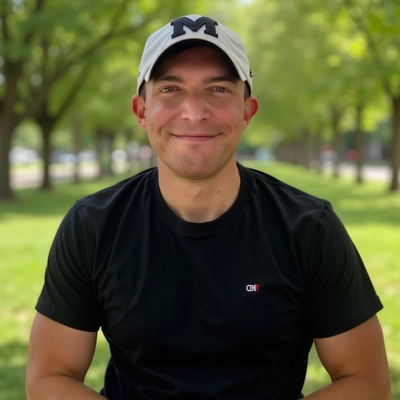
Health Setback Taught Balancing Success With Wellbeing
In 1997, I experienced a profound setback when severe burnout caused my weight to drop to just 97 pounds, affecting both my health and professional capacity. This difficult period taught me that success is unsustainable without prioritizing personal well-being alongside professional goals. The strength I gained was learning to intentionally schedule time for myself and identify personalized stress-management techniques that work specifically for my needs. This experience fundamentally changed how I approach leadership, as I now understand that maintaining personal balance is not self-indulgent but rather essential for long-term effectiveness and success.

Slow Failure Developed Observant Patience
One of my hardest losses was watching an early startup I built completely collapse — not dramatically, but slowly, like a balloon leaking air you can’t find the hole in. We had great tech, passionate people, even some traction. But we ignored small cracks — misaligned incentives, inconsistent communication, cofounders quietly burning out — until the whole thing fell apart.
What I took from that wasn’t the usual “fail fast” cliché. It was learning how to sit with slow failure — the kind that doesn’t give you a clean break or a tidy moral. I used to treat discomfort like a sign to fix something immediately. Now I realize some pain is diagnostic. You have to feel it fully to see where the real problem lives.
That experience gave me a weird but powerful kind of patience. Not passive patience — observant patience. The ability to let a problem breathe before dissecting it. At Listening, that’s shaped how we experiment, manage people, and even design features. I don’t rush to pivot the second something looks off. I watch the pattern emerge first. It’s a slower strength, but it’s the one that’s kept this company alive.
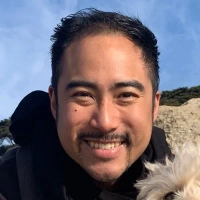
Grandmother’s Diaries Revealed Inherited Resilience
Through the Eyes of my Grandmother as a Child
When I began uncovering my grandmother’s story, I didn’t realize her experience of loss would guide me through my period of uncertainty, helping me find a renewed sense of strength, purpose and sense of belonging.
During the COVID pandemic, my mother and I began a project that would eventually lead to my book, Last Ship to Freedom. It all started with the rediscovery of my grandmother Lydia’s diaries, found one hundred years after her first entry. What started as an effort to preserve her words became the catalyst for my own personal transformation. As Lydia described what it felt like to lose everything familiar, at just eleven years old, I found an unexpected comfort in her reflections. Even though our circumstances were vastly different, I could relate to her uncertainty, her search for stability, and her faith that everything would somehow be OK.
In January 1920, Lydia boarded the steamship Kherson, where she and her parents would live for the next eighteen months while fleeing post-Imperial Russia. Through her child’s eyes, she captured the everyday moments of life as a refugee: her father’s work on the ship, coal shortages, the fear of disease, and the longing for home. Lydia’s resilience shone through as she found small glimpses of light that carried her forward. Writing her story challenged me to look inward and to recognize the strength I inherited and the gratitude I felt for her survival.
Her resilience became my motivation. Whenever I doubted myself, I remembered that her strength runs through me. Looking back at what she endured, I gained perspective and found meaning and courage to move forward. By sharing Lydia’s story, I not only honored her legacy but also uncovered my own growth. My perseverance and hope are not just inherited; they’re lived and renewed, one generation at a time.
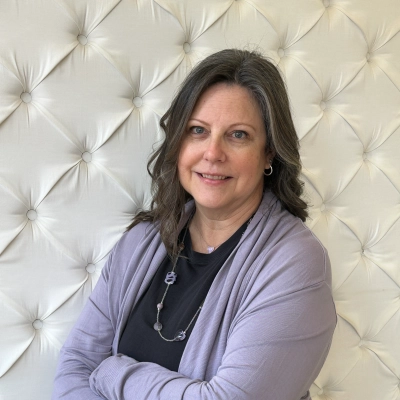
Construction Bid Error Cultivated Verification Discipline
A massive operational setback—losing the biggest commercial bid of my career due to a single, preventable error in material specification—ultimately contributed to my growth. I treated the failure not as a personal defeat, but as a catastrophic structural failure in my verification process. The conflict was the trade-off: I could blame the supplier (abstract) or accept the responsibility for the flawed final blueprint (hands-on). I chose the latter, recognizing that relying on external assurances created a massive structural vulnerability.
The setback forced a radical shift in my professional discipline. I implemented a non-negotiable “Double-Lock Verification Protocol” for all material orders. This dictates that the estimator and the foreman must now both independently perform a hands-on structural audit of the material specification against the building code and the final blueprint before the order is placed. This sacrifices speed and adds friction to the start of the job, but it secures the foundation against expensive, unrecoverable mistakes.
The strength that emerged from this difficult experience was Structural Mistrust of Simplicity. I learned to view speed and simplicity as immediate risks that must be actively audited. My personal growth came from internalizing the fact that perfection is the only acceptable structural standard in heavy duty construction. The best way to grow from a loss is to be a person who is committed to a simple, hands-on solution that prioritizes verifiable structural certainty above all other incentives.
Near-Death Experience Redefined Personal Success
My near-death experience in childbirth completely changed how I move through the world. Before that, I was the definition of “high achieving.” I measured my worth by output—how much I could do, how perfectly I could handle it all. But when you come face to face with the reality that you might not make it, everything you thought mattered suddenly doesn’t.
That moment stripped me down to what was real: family, health, time. It forced me to rebuild not just my life, but my definition of success. The strength that came out of that experience was clarity. I learned how to protect my peace, how to ask for help, and how to build systems—both in business and in life—that don’t rely on me burning out to function.
It’s also what inspired my company, She’s A Given. I wanted to create something that helps other people get their time back before life forces them to. That experience taught me that survival isn’t just about living—it’s about living well.
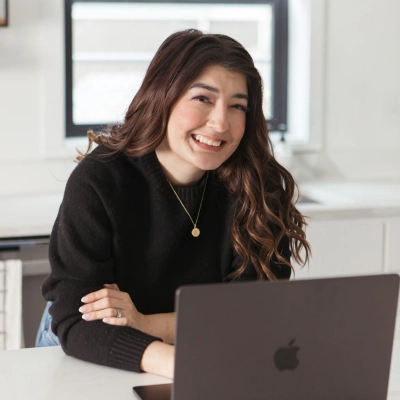
Lost Client Transformed Leadership Through Humility
One of the most defining setbacks in my journey came during the early days of building Zapiy. We had just landed what I thought was a breakthrough client—someone whose logo would instantly elevate our credibility. I poured every ounce of energy and focus into that project, sometimes at the expense of other clients and even my team’s bandwidth. But within a few months, that client pulled out unexpectedly. The partnership collapsed over misaligned expectations, and I was left questioning everything—my leadership, our process, even whether I was cut out for this.
At the time, it felt like failure in its rawest form. But looking back, that loss became the turning point in how I approached both business and growth. It forced me to confront a hard truth: we were chasing validation instead of vision. I had been so focused on proving that we could win big that I overlooked the importance of balance, communication, and alignment.
That experience taught me the strength of humility and resilience—not as buzzwords, but as practical tools. I learned to build systems that don’t crumble under the weight of one lost client or project. We started focusing more on clarity upfront—defining expectations, communicating transparently, and making sure both sides understood not just what success looked like, but what it felt like day to day.
Personally, it also changed my relationship with failure. Before that, I saw failure as something to avoid; now I see it as a teacher that demands attention. Every major stride we’ve made since—whether in process, leadership, or culture—can be traced back to lessons from that setback.
The strength that emerged from it was perspective. I learned to measure success not just by wins, but by how we respond when things don’t go as planned. That shift allowed me to lead with more empathy, patience, and self-awareness. Losing that client might have hurt in the moment, but it gave me the foundation to build something far more stable, sustainable, and human.
Failed Businesses Taught Critical Entrepreneurial Flexibility
My experience with failed business ventures, particularly with Content Ideators and Bloggism, has been one of my most significant learning opportunities in my professional journey. When these businesses didn’t succeed—one being too niche and the other too broad—I initially viewed it as a devastating setback. However, this experience taught me that flexibility is not just helpful but critical in entrepreneurship. I learned that no business plan survives first contact with the market intact, and the ability to pivot quickly can make the difference between failure and success. Perhaps most importantly, this setback instilled in me a deep appreciation for contingency planning, as having a solid Plan B could have potentially saved those ventures from complete shutdown. This growth in strategic thinking has strengthened every business decision I’ve made since and transformed what felt like failure into valuable wisdom.

Rejected Pitch Unlocked Authentic Brand Voice
One of my earliest pitches as a founder fell flat. Not because the idea lacked merit, but because I tried to sound like everyone else. I diluted my voice, softened the edges, made it “safe.” The client passed, and I sat in that silence.
That setback became transformative. It taught me that true resonance doesn’t come from mimicry; it comes from authenticity. From having the courage to speak in a way that reveals personality. That loss gave me the confidence to build Blushush not just as an agency, but as a philosophy: brands should feel. They should connect with their audience, not just inform them.
The strength that emerged was emotional conviction. I stopped chasing approval and started pursuing alignment. Today, every strategy we craft is intentionally personal because when you lose trying to be someone else, you ultimately learn to win by being yourself.

Supply Chain Disaster Built Operational Vigilance
My business doesn’t deal with abstract setbacks. We deal with operational catastrophe. The one specific loss that ultimately contributed to my growth was an enormous, high-value inventory shipment of OEM Cummins parts—including critical Turbocharger assemblies—that was destroyed by a carrier accident due to preventable human negligence.
The financial loss was immediate and severe, but the biggest setback was the blow to my confidence in my own operational systems. I had trusted external logistics when I should have enforced internal control. This difficult experience forced a complete, painful reckoning with my leadership style.
The strength that emerged was Non-Delegable Operational Vigilance. I realized that success in the heavy duty trucks trade is not achieved by hiring smart people, but by assuming that every single point of the supply chain—from the manufacturer to the final delivery confirmation—is compromised until proven otherwise.
I fundamentally changed how I run the business. I personally oversee and audit the physical logistics of all high-value shipments, eliminating the operational slack that allowed the negligence to occur. My growth came from accepting that I must be the final guarantor of the system’s integrity. The ultimate lesson is: You grow not from success, but from the brutal financial truth revealed by your most catastrophic operational failure.

Product Crisis Built Customer Trust Through Transparency
A few years ago, a manufacturing error contaminated an entire batch of our best-selling face cream. We had thousands of units already with customers. The financial loss was significant, but the thought of betraying the trust of families who rely on our products was crushing. It felt like a deep personal failure, especially since I started this company to create products safe enough for my own daughters.
We chose to handle it with complete transparency. We immediately announced the issue on our channels, explained the error, and proactively refunded every customer who bought from that batch. The response was overwhelming. People thanked us for our honesty. That crisis taught me that community gets built on how you respond when things go wrong, not on maintaining a perfect record. A fierce dedication to our customers grew from it, and that has become the foundation of our brand.

Lost Contract Developed Empathy in Leadership
Losing a major distribution contract early in my career was a turning point. The setback forced an uncomfortable but necessary realization—that efficiency and relationships cannot be treated as separate goals. Our systems were strong, yet our communication had grown transactional, leaving partners feeling disconnected. When the contract ended, it exposed the cost of neglecting relational depth in pursuit of operational precision.
Rebuilding from that experience developed a new strength: empathy in leadership. I began prioritizing consistent dialogue with clients and team members, not just performance updates. That shift reshaped how I approached negotiations, feedback, and collaboration. It also deepened resilience, teaching that professional losses rarely close doors—they redirect focus toward the skills and values that sustain long-term success.

Client Loss Created Better Project Management
I lost a client that I had been working with for years because I promised them too much after skipping the proper discovery process. I contacted them on the same day, admitted my fault, and proposed a solution, but they had already decided to leave. The pain of this experience made me establish a routine of clear scoping, risk checks, and open communication whenever something slips. The strength that emerged from this experience is the combination of calmness and honesty under pressure and more efficient systems.
What the readers can do: Write a one-page brief prior to any project, enumerate the goals, the constraints, the risks, and the method of measurement of success. Conduct a short pre-mortem with your team wherein you will ask what might go wrong and then agree upon two or three “stop signs” that will signal the need for a reset. Provide simple weekly updates containing information about what has changed, what risks are increasing, and what you need from others. Whenever you fail, inform your stakeholders early, outline the new plan, and solicit feedback on record.

Patient Loss Developed Medical Emotional Endurance
At the beginning of my medical practice, I lost a patient whose condition deteriorated at a faster rate than anticipated despite all the interventions. The experience redefined my perception of medicine and my weaknesses in it. I did relive the case for weeks, trying to find something that I could have overlooked. What emerged as a result was a much more evident feeling of humility and presence. I also discovered that healing does not just happen in results but also in our appearance to patients and families during times of uncertainty.
The ensuing strength was emotional endurance. I learned to balance empathy and boundaries more carefully and learned not to allow grief to cloud my judgment. The lesson of that loss was that compassion is not choosing to absorb all the sorrow but rather to care even when the result is not as we would have wished. The outcome was a more solid, more grounded attitude towards medicine and life.

Hiring Mistakes Refined Values-Based Team Building
Early on, I hired too quickly during a busy season and ended up with a few people who weren’t the right fit. It created stress for the team and cost us time fixing mistakes. At first, I saw it as a failure in judgment, but it turned out to be one of the best lessons I’ve learned as a business owner. It pushed me to slow down and focus on hiring for attitude and values first, not just skills.
The strength that came from that experience was patience in decision-making. Now, I’d rather wait a few extra weeks to find someone who truly fits our culture than rush to fill a spot. That shift has helped us build a stronger, more committed team—and it’s one of the main reasons we’ve kept growing steadily since.
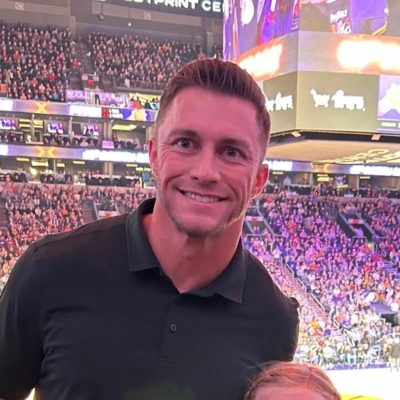
Separating Self-Worth From Startup Outcomes
The first company I co-founded failed after four years of nonstop work. I was devastated that so much effort was not enough to make it succeed and felt like I had lost a part of myself. In hindsight, it was one of the most valuable experiences of my life. I learned not to tie my sense of self-worth to career success or the outcome of a startup. When your identity depends on external validation, failure feels personal, but when you separate your worth from results, you gain resilience and clarity that make you a stronger person.
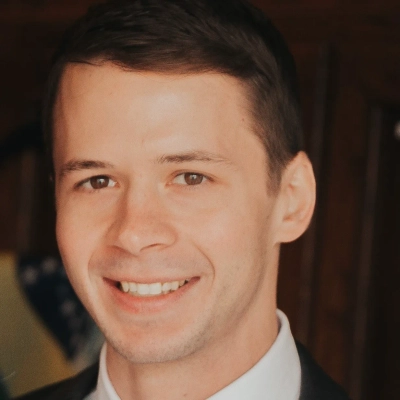
Code Migration Failure Fostered Engineering Diligence
I still recall the day that I got caught out leading a big codebase migration that went spectacularly wrong, mainly because I was completely blind to the fact that a critical, teeny-weeny dependency was hiding in the depths of the old codebase. All that painstaking work for months just disappeared down the drain.
However, all was not lost; that massive setback ended up teaching me the real value of being humble and having a ton of good documentation.
Nowadays, when I’m working on a new system, it’s not just about writing code; I go at it with the attitude of a real detective, always looking to understand the history and the logic behind the code that’s already there. That one failure meant I ended up being a lot more cautious, a lot more detail-oriented, and ultimately a whole lot more reliable as an engineer.

Failed Service Launch Taught Market Adaptability
A few years ago, we invested in a new service line that didn’t take off the way we’d hoped. We spent months planning, training, and marketing it, but the demand just wasn’t there. It was frustrating because we’d poured time and money into something that seemed like a sure bet. At first, I saw it as a failure, but it turned out to be one of the best lessons I’ve had about listening to the market rather than assuming what people want.
The strength that came from that experience was adaptability. It taught me to pivot faster and test ideas on a smaller scale before going all in. Now, whenever we try something new at Absolute Pest Management, we run small pilots, gather feedback, and build from there. That approach has helped us grow more efficiently — and with a lot less stress — because we learn and adjust before making big moves.

Service Mistake Built Culture of Accountability
Early in my career, we lost a major commercial client after a service mistake that could’ve been avoided with better communication. It was tough because I took it personally—I’d built that relationship from the ground up. But looking back, that loss forced me to take a hard look at how we trained and supported our team. I realized that clear expectations and follow-up matter just as much as technical skill.
The strength that came out of it was accountability. Instead of pointing fingers, we built a system for learning from every mistake, big or small. It taught me that growth comes from being willing to face failure head-on and using it to make your team—and yourself—stronger.

Disappointment Transformed Into Steady Confidence
Losing a long-planned opportunity taught the kind of patience that no success ever could. The disappointment forced a pause that felt unproductive at first but later revealed its purpose. In that space, priorities clarified and identity separated from achievement. The pause became an invitation to rebuild not around ambition, but around resilience and humility.
The strength that emerged was steadiness—the ability to move forward without needing constant proof of progress. That steadiness now anchors decision-making and relationships alike, offering a quieter confidence that endures beyond temporary wins or losses. What once felt like failure reshaped perspective, showing that growth often begins where control ends.


